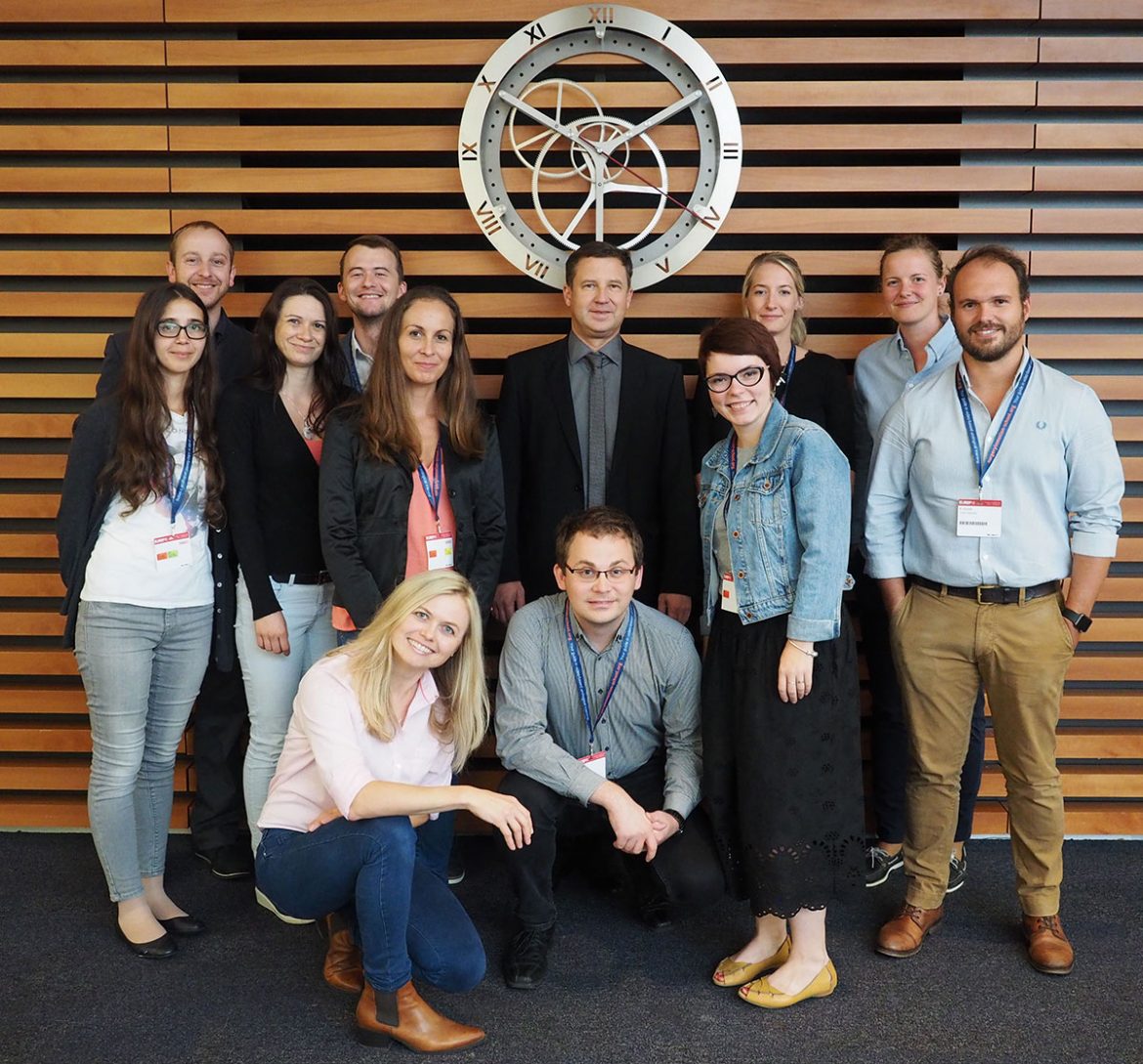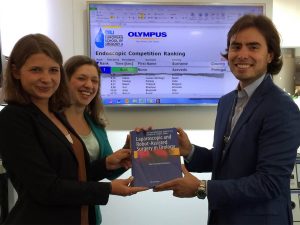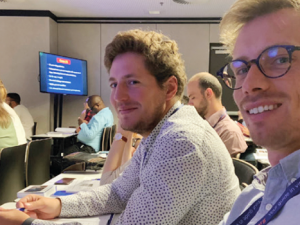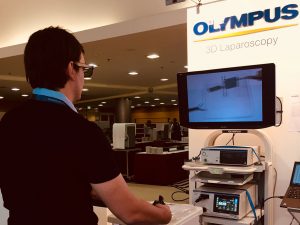After starting my residency, I was surprised when a colleague of mine told me that my hometown Prague turns into the education capital for European urology residents every September.
Based on her positive experience, she recommended participating at EUREP and advised to register as soon as possible due to the programme’s popularity and limited capacity.
Later on, I learned that the Czech Urological Society (CUS) helped the European Association of Urology (EAU) to start the first EUREP in Prague back in 2003.
Several Czech academic urologists have been participating in the EUREP faculty since the beginning, such as Profs. Hanuš, Kočvara, Babjuk, and Hora.
EUREP18 experience
At the Clarion Congress Hotel, EUREP18 commenced Friday morning of the 31st of August and all the faculty members were introduced. The teachers were respected urologists, mostly known as authors of scientific papers or members of EAU Guidelines Panels.
The six-day intensive programme covered almost the whole spectrum of urology (e.g. onco-urology, LUTS, functional urology, andrology, lithiasis, infections, trauma, and paediatric urology) and provided us with a comprehensive knowledge of the EAU Guidelines.
The programme was divided into five modules with four teachers per module wherein the lectures were interactive seminars rather than a passive intake of facts.
The residents had the opportunity to improve their surgical skills during hands-on training (HOT) sessions, which became a popular and inseparable part of EUREP throughout the years. In total, there were 24 stations for laparoscopy and endoscopy that provided realistic experience of different procedures.
Laparoscopic skills were tested at either basic or advanced level during the E-BLUS exam. In endourology there was a possibility to choose between ureteroscopy and transurethral resection. Since every station had one HOT tutor, residents were encouraged to interact with them in order to gain the maximum from the session.
On Sunday evening, a barbecue party took place at the Letenský zámeček restaurant, which has a marvellous view of Prague (I still admire the view even though I was born and raised here). After sunset, the party turned into a karaoke party where popular songs were performed. Some of the participants spent some nights and early mornings at the James Dean Prague, a club in the historical centre which became a EUREP staple in the last years.
EUREP’s excellence was achieved by several measures such as attendance was checked twice a day, and teachers were evaluated by the residents. Those who reached less than 4 out of 5 points will not be invited next year.
A unification of European urology residents definitely brings advantages such as making contacts and exercising “European English”, as said by ESU Chair Dr.
Joan Palou during his welcome speech. Moreover, an arrangement of such an extensive event within individual countries has been made possible.
Nevertheless, the first foray into national residents education programmes might be #BUREP (Belgian version of #EUREP) organised at KU Leuven, as recently announced on Twitter.
Why we should apply early
Current requirements for Czech urology residents were released in 2011. It takes at least five years; a two-year urological trunk, and three years of specialised training, which includes clinical rotations in neighbouring specialities (e.g. general surgery, gynaecology, oncology, paediatric urology), and specialised courses.
There is a list of mandatory procedures that the residents must perform. After two years, they take the first exam at the end of the urological trunk which gives them clinical competencies. At the end of residency, they take written and oral exams. These exams are not compulsory for residents who have European Board of Urology (EBU) certification and these residents are required to only write their thesis on the subject close to their topic of interest in urology. The expenses related to the EBU
certification are compensated by the CUS if the residents pass. The residency programmes are organised by the Czech Ministry of Health and medical faculties (formerly by the Institute for Postgraduate Medical Education).
Out of 360 participants from 44 countries, 10 residents were from Czech hospitals. This reflects the necessity of early application to the unique educational event such as EUREP.
EUREP definitely surpassed my expectations. It challenged me and the rest of the residents to uphold the very high standards the programme has bestowed on us, and encouraged us to perform better in our clinical practice.
By: Dr. Jan Novák
General University Hospital
Prague (CZ)
@MUDrJanNovak





